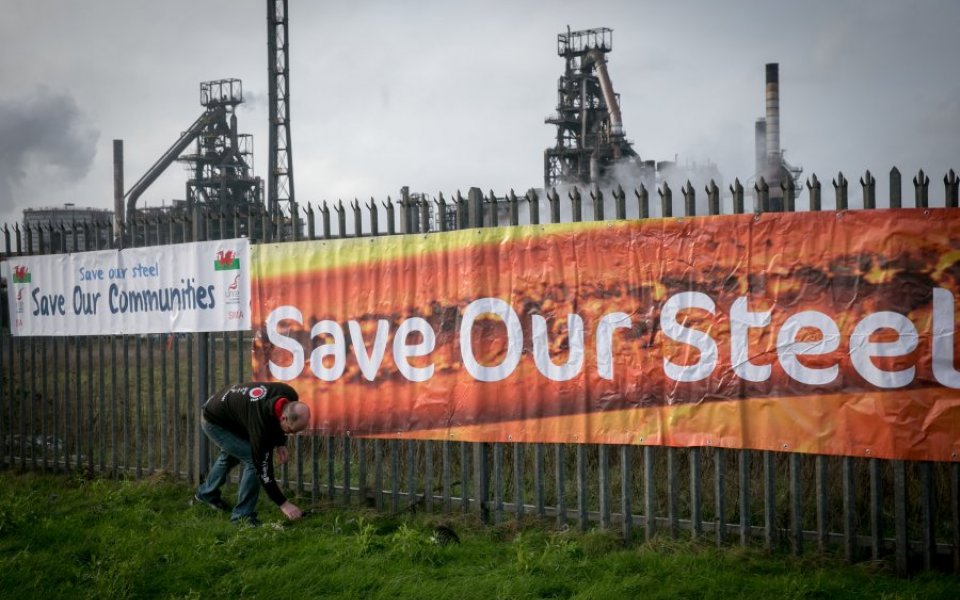Thousands of steelworkers to protest in Brussels for EU action against Chinese dumping

More than 5,000 European steel workers are expected to gather together to protest in Brussels today, to coincide with a conference on the future of EU steel.
The industry is urging EU leaders to stop Chinese 'dumping' of cheap steel, which it argues is giving the Asian superpower an unfair advantage and is putting thousands of European jobs at threat.
The European Commission conference will be attended by ministers from across the continent, including the UK's minister for small business, industry and enterprise Anna Soubry.
Karl Koehler, chief executive of Tata Steel's European operations, will be joining the protest, alongside more than 500 of his company's employees, hundreds of which will come from the UK.
Last month, Tata Steel confirmed that it would cut more than 1,000 jobs in the UK, including 750 at Port Talbot, the country's largest steel plant.
“The situation facing Tata Steel and other European steel makers today is perilous,” said Koehler.
“If the European Commission does not take immediate and robust action, thousands of jobs in the industry – and many thousands more in the wider supply chain – will be threatened.
“We are not asking for special treatment. Instead, we are asking for the European Commission to stand up for fair trade and to give European steelmakers a chance to compete on a level-playing field.”
The price of steel has plummeted over the past 18 months as China has flooded the market with cheap, subsidised steel in a bid to make any money it can during a slowdown in the country's growth.
Today’s march on Brussels commences at 11:30am at the Schuman roundabout, in front of the European Commission, and is expected to attract protesters from 17 European countries.
Steelworkers will also call on the EU not to award China market economy status (MES), which it is feared would remove the EU’s ability to stop unfairly-traded imports from China.
“75 per cent of all the EU's anti-dumping measures already involve China,” said Milan Nitzschke, spokesperson for trade body AEGIS Europe.
“EU Trade Commissioner Malmström has been swamped by new complaints about unfair Chinese practices in recent weeks. While factories are closing daily across Europe, how can the European Commission openly talk of surrendering MES to China?”
The Economic Policy Institute estimates that up to 3.5 million EU jobs and €228bn in annual GDP would be put under threat if China is granted MES.
Business Minister Anna Soubry said: “We are taking action on energy costs, public procurement and industrial emissions at home to help the steel sector, but this is a global problem requiring a global solution."
She called for swifter investigations into dumping and emphasised the need to set tariffs at the correct level.